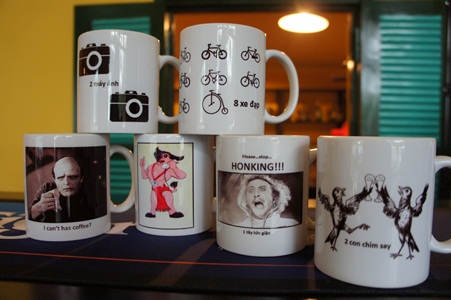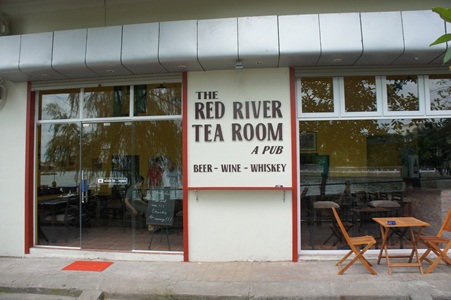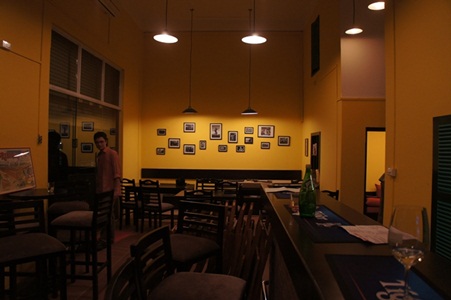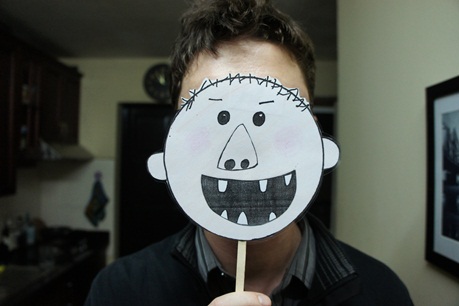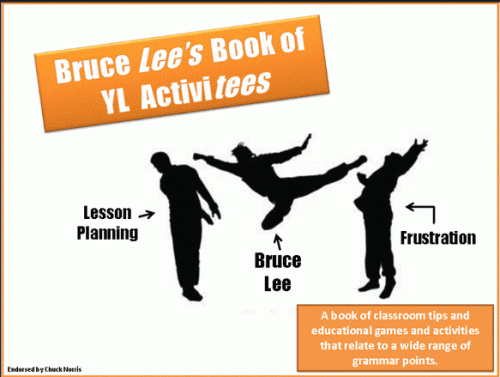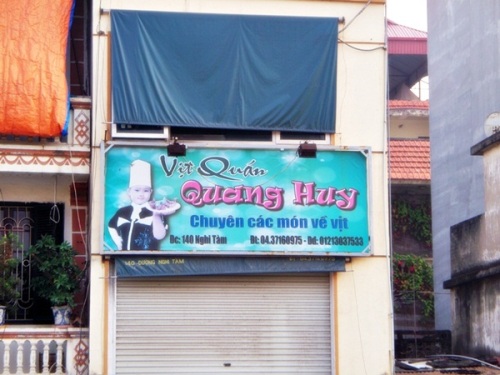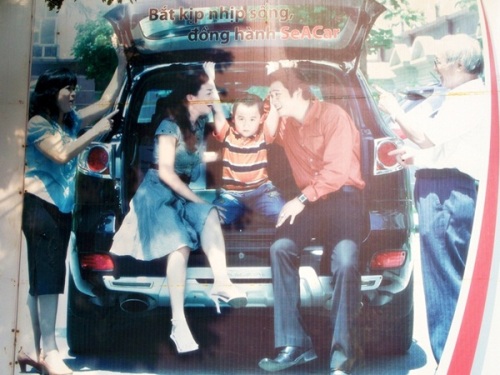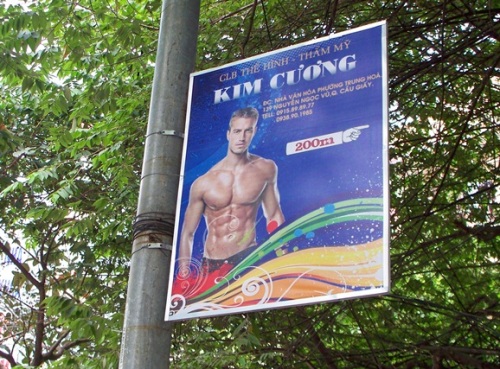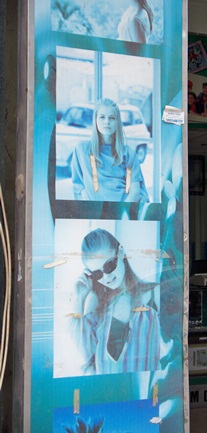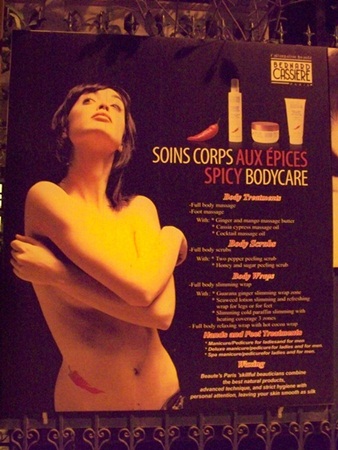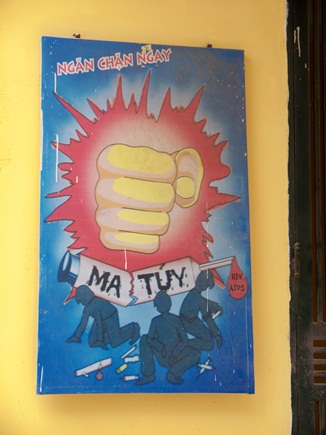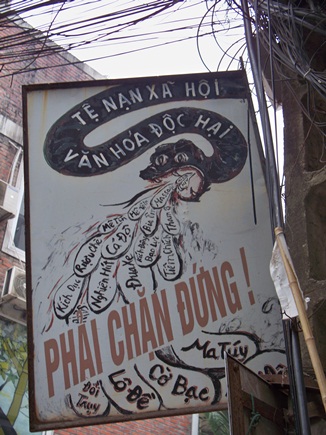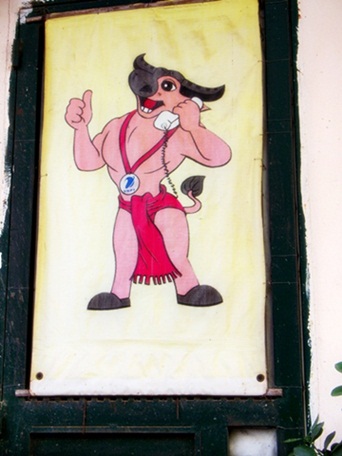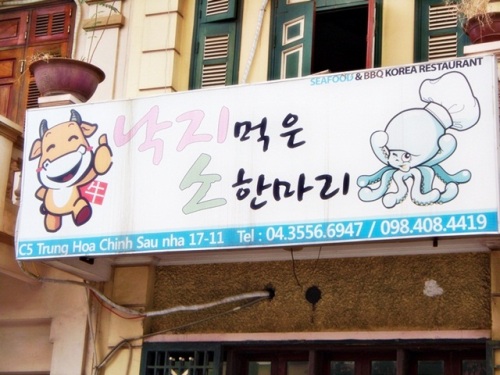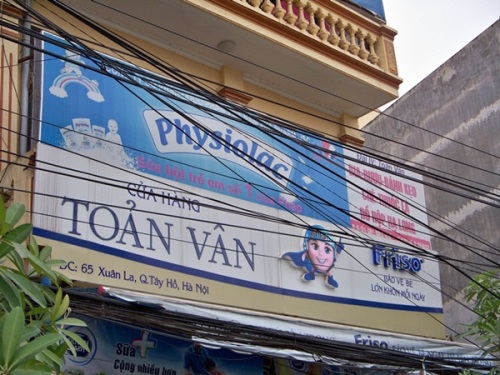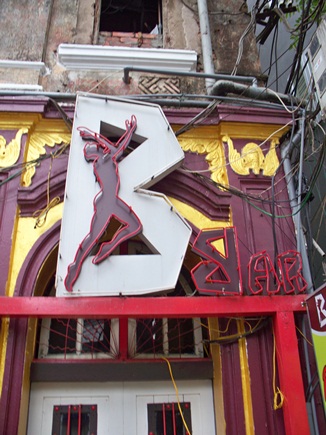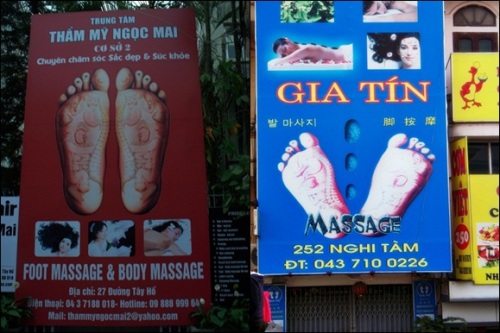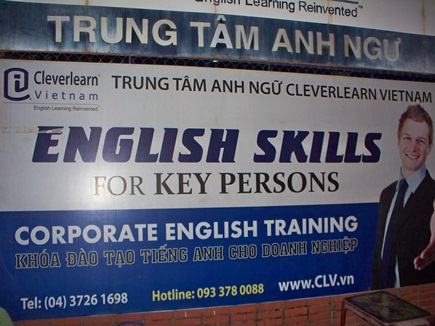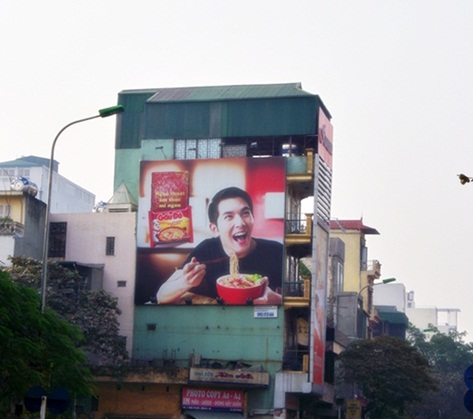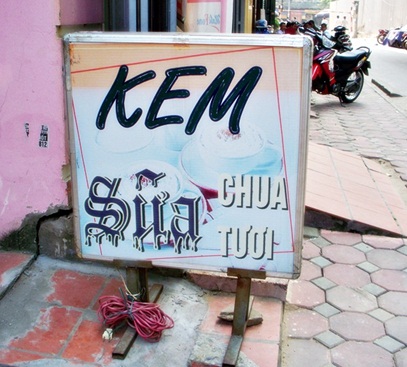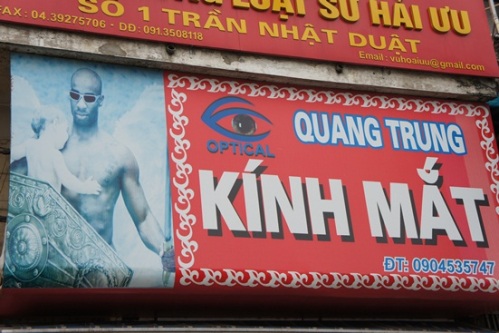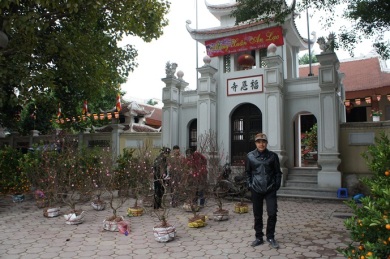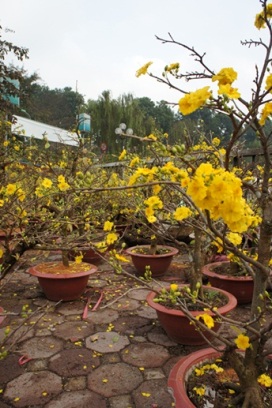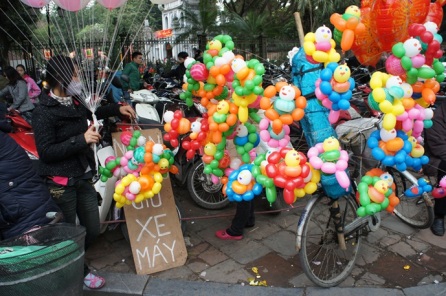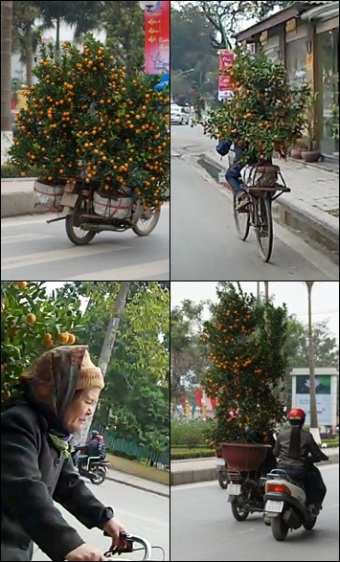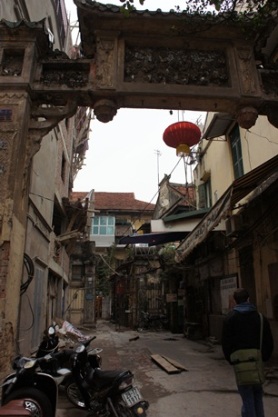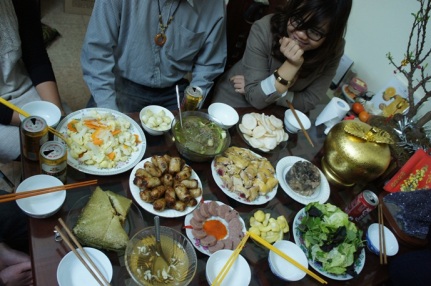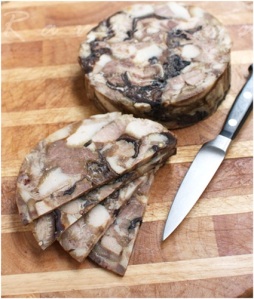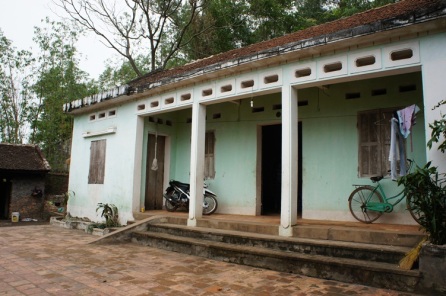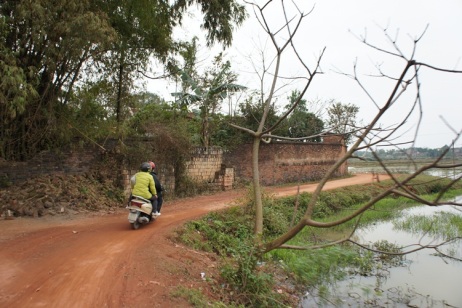
At the end of the summer, I was able to finagle a deal with my employers to allow me to work from home for several weeks, home this time being the US. Nothing refreshes Hanoi more than an extended absence from it. Of course, this is likely true for any place. Due to my long periods of absence from the US, my trips home always have a romantic feel to them. This trip felt particularly magical. How could it not with all the reunions with much-beloved family, friends, places and food? The shake-up of routine? I often feel the need to remind myself that the magic would not survive the day-to-day of living there again. If I didn’t acknowledge this, I’d have dropped everything and moved back after the first visit or two. I don’t suffer from the reverse culture shock reported by others (Notable exception: American TV, which always blows my mind; while a lot of TV is quite good, most of it seems mean-spirited and ugly). This is perhaps because I visit fairly regularly.
I find it’s true that living abroad has not only helped me better appreciate aspects of another culture but also aspects of my own. While there are facets of American life and culture that exasperate me – I was there during election time after all – I now appreciate a number of things that I took for granted before. The three things that stick out the most are the American version of politeness, Americans’ general openness, and the seemingly endless variety of options.
I’ve joked before about the trajectory of expat-in-Vietnam living. We’re at times comically predictable: the newbies all fixated on the same things (street food, traffic, getting ripped off) and declaring the same clichés (I really want to live in a Vietnamese neighborhood, not to live in a Western bubble); the less-than-newbies’ attempts at recreating their lives from home (joining an expensive gym, searching for the city’s best falafel); some of the old-timers’ tendency to sulk and complain, about both Vietnam and other expats. Although we’re individually different, patterns do emerge. I find myself now struggling to avoid falling into the trap of bitter expat syndrome.
And it is a struggle. Like my emotions have acquired a hair-trigger in which a mundane annoyance can easily devolve into extreme frustration. An example: Upon returning, I found that my neglected motorbike had two flat tires. I did what anyone would do and pushed it to a nearby fixit place. On the way, a parked taxi driver rolled down his window, pointed and said something (probably, “your tires need air”), and gave a hearty laugh. Really not a big deal, but I found my cheeks turning hot. “What is so fucking funny about this situation?” I thought angrily. “Why can’t you just let me do this very uninteresting thing without a running commentary?” I’m not usually a hothead, but this silly incident peeved me.
This is usually the point when the crazy train comes rolling along, cargo loaded with sweeping generalizations: Vietnamese people are so rude! Not, that taxi driver was sorta rude or that taxi driver sure has a weird sense of humor. And just as I think this thought, almost immediately I feel guilty. Not just guilty, but stupid. Like a child throwing a fit over absolutely nothing. How can I allow myself to go there? Of course Vietnamese people aren’t rude, think of all the favors and kindnesses so many have done for you. Both friends and strangers. Shame on you Sarah!
That’s an example of the very mundane. This line of thought also follows when the police extract bribes from friends, or I see yet another child not wearing a helmet as his parent swerves in front of me without glancing, or I read about government officials’ superstitious affinity for rhino horn, so on and so forth. Depending on the day, these things, from the small to the large, can send me into a tizzy. I’m certainly not the only one. Other expats frequently share stories of their overreaction and woe. Maybe they cursed at a delivery guy, lost their temper with a coworker, or kicked the door of a taxi. I once knew a woman who used to punch people’s helmets while driving next to them on her motorbike. Very amusing! And crazy! I have yet to totally lose it on a stranger. My reactions tend to run along the lines of defeated sighs or indecipherable mutterings.
A casual search on the internet suggests that expat aggravation is a very common phenomenon, not just in Vietnam but everywhere. It’s something I’ve been thinking about a lot lately, and I’m writing about it now in an effort to understand it better. People talk about “bitter expats” as though they are moral failures. Yet basically everyone I’ve known who’s lived in Hanoi for more than a year has suffered the symptoms now and then. It’s gotta be more than just a personal failing. After talking to some friends, here are a few ideas.
From observer to participant: When most people arrive, they’re just trying to figure out how to survive or adjust. How to find a decent thing to put into your mouth so your body continues to function. How to get from point A to point B without getting hit by a bus. How to find an apartment and buy a bed. How to make friends with whom one can actually converse, basically the only requirement in the beginning. All that surviving is distracting. Then you get over it (falafel successfully obtained!) and get on with daily living. B-o-r-i-n-g. We came here for adventure, not for living! Why does it now feel like merely living? The sample is also perhaps skewed. People who leave their home countries to live in an alien culture may have a harder time with stasis and settling down. Isn’t that what we fled from to begin with?
There’s also a matter of involvement. When I was new, I wasn’t really invested in Vietnam. I could observe things in a more detached way because, while I was interested, I didn’t actually care much. It was just a place I was wandering through for an experience. Not yet a home but a strange place I was exploring. The longer I’m here, the more I care about it. Just like in the US, it frustrates me when I see something that I don’t think is right but that can change or get better. This place is awesome, but it can do BETTER! I get the same feeling when I see people vehemently denying global warming or fighting gun control in the US – c’mon Americans, we can do BETTER! It’s easy to feel powerless in the face of it back home, but that feeling is amplified here. I can barely figure out how to call a plumber without my friend’s help, how am I supposed to accomplish anything?
Vietnamese people seem to often have the same attitude. It’s a little too overwhelming and complicated for me to write about here. But basically acceptance of the ugly things in society, systems, or government seems to be the default. People will admit that something is wrong or unjust, but then readily explain that this is just the way it is. No changing it. Is this also true back home? In my mind, we’re always railing against something, although not necessarily successfully. I understand how and why it’s different here, and I just bring it up because the powerlessness of it can be stressful.
Small stressors building over time: Usually, the things that set me off are very small. That’s what seems so crazy about it. Sure, anyone would get angry after being robbed or directly insulted. But nothing so dramatic is happening. It’s more like minor miscommunications or setbacks. Things that are no big deal can feel like a BIG FUCKING DEAL. Why?
It’s difficult for me to articulate, but I have the feeling that part of it is the consistent non-meeting of expectations. Basically, when you’re strolling along in your own culture/community, you’re adhering to ways of thinking and behaving that are unspoken and nearly universal. Social contracts. An easy example is the queue. You don’t need to have a conference with the other customers at the grocery store and then collectively decide that the fairest way to organize is to line up to pay, first come first serve. Nope, you just do it. You don’t think about this unspoken rule until it’s disrupted, as it often is in Vietnam. Many of these unspoken courtesies or rules are simply different here. The Vietnamese don’t adhere to ours, and we only begin to adhere to theirs after learning them through trial and error (one embarrassing goof at a time). These minor disruptions cause small ripples of distress. While each individual breach of expectation is unremarkable, they build up to the point of madness. And that’s when we go crazypants and overreact.
The outsiders: The overarching theme is our outsider status. I’m oblivious most of the time, and I do live a bubble, so it sometimes surprises me when people stare at me curiously or treat me in an odd, goofy way because I’m a foreigner. I expected this initially and practically welcomed it. I was gawking at Hanoi, and it was gawking right back. Now, it’s more like, “Yes, I’m here! I’m over it Vietnam, why aren’t you?”
It’s not just the inability to blend in, for there are many places in Hanoi where I feel like I blend in perfectly. It’s something else. Something more difficult to pinpoint. As outsiders, we don’t always know how to put the things we see or experience into the appropriate context. There’s too much we don’t see and don’t understand to make sense of it. So instead, we force it through the lens of our experience, and it just doesn’t fit.
In many ways, it’s liberating to be an outsider. There are few people to answer to and little accountability for your decisions, no matter how stupid. The locals tend to leave you alone as much as possible, a fact that too many take advantage of. This is why many Westerners treat Southeast Asia as their personal playground. They can be obnoxious, entitled jerkwads and get away with it. But over time, I think the constant fish-out-of-water feeling has a wearing effect.
A downside to the lack of social responsibility is that it comes with a lack of social support system (i.e., friends, family, and community that know you and are invested in your success). You don’t really have to do anything, the world is your oyster! So, go on, do something. The dramas and obligations that preoccupied you back home are blissfully gone, but now what? Don’t get me wrong, this can be a gift. Hanoi has awarded many with the opportunity to explore and build things that would be difficult to do back home. But when you’re stuck with little knowledge of the place and people around you, it can also be a burden. While most of us like to fashion ourselves as independent, self-reliant agents, we get lost easily without a map. With less accountability and support, you need to acquire a stronger sense of self-determination. Or wallow, I suppose. Not always easy peasy.
Bottled-up: As mentioned, there are things that I find maddening about the US as well (easy considering that I’m from Texas). The difference is that it’s my right to rant about my country and the many idiots who inhabit it. The self- and outsider-imposed censorship that stems from being foreign can be a tough road to navigate. There’s also the uncomfortable fact that Westerners inhabit a privileged status here. Even nutcases can land a well-paying job or spouse easily, especially if they’re white. I’ve seen it!
It’s a lot harder to criticize a culture not your own and one in which you’re treated so well. It irritates me when people imply that saying anything against Vietnam is not ok. It just feels disingenuous and even condescending. Vietnam can handle it. It doesn’t need protecting against the inane rants of us foreigners. Of course, feel free to rant right back, but we all need a little venting, don’t we?
——–
It’s a complicated thing overall. I haven’t written in a while because, well, if you don’t have anything nice to say… But not just that. I’ve sort of run out of blogging steam in general.
I initially wrote this post back in November 2012 and revisited it again in December, but then failed to post it because my bitter expat feelings waned considerably. I’ve been feeling much more at peace with Hanoi in general, and I think this is due in large part to my picking apart the issue on my own and with others. Rightfully shifting the blame and stress from Hanoi to other things where appropriate. Buying a new bicycle and riding around the city more also helped. Exploring Hanoi always charms me, and I don’t know why I so often forgot to do it.
And now it’s February already, and I’m back in the US. Not just for a visit. Moving on home! I’ve written one final post on that, to be uploaded within the next few days or so. I just thought maybe this post deserved the light of an internet screen before that.

Not always sunny, but lovely nonetheless.















